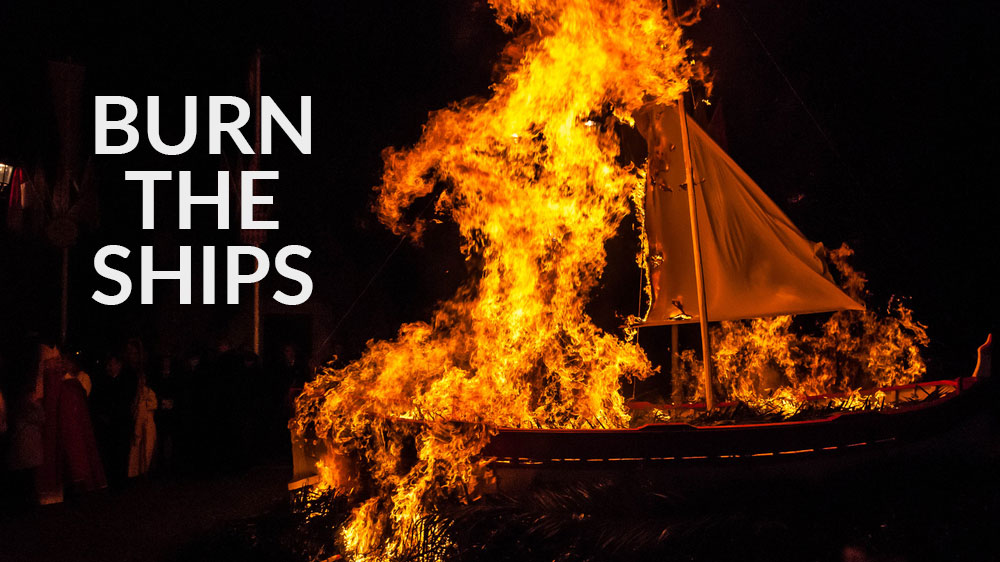



When an American whaling ship stumbled on the island 19 years later and solved the mystery of the lost HMS Bounty, only one mutineer was left alive, along with several women and children. ( Real Life demonstrated how this tactic can backfire. At the end of The Bounty, Fletcher Christian has HMS Bounty burned, to make sure the mutineers are committed to living on Pitcairn Island and to prevent anyone from trying to get back to Tahiti or England.Let's sever our ties with Spain and crown Don Fernando de Guzmán Emperor of El Dorado. It is also certainly not the same as a Viking Funeral, although they do both involve burning a boat.Īguirre: Fortune smiles on the brave and spits on the coward. If you were thinking about burning pairings, see Ship Sinking. Not to be confused with Sink the Lifeboats (that is, Burning Their Ships), which is about preventing your enemies from escaping so you can exterminate every last one of them. Throw the Sheath Away and The Gloves Come Off are distant relatives. An employee quitting a job in a way that makes sure they can't ever go back again is Take This Job and Shove It. Contrast Let the Past Burn, which is mostly a symbolic action on an individual scale. This trope often leads up to a Big Badass Battle Sequence, which will more than likely end in a Last Stand.Ĭompare Cornered Rattlesnake, which is non-voluntary. Characters who Burn the Ships are often Anti-Heroes, Anti-Villains, or Villain Protagonists.
#BURN THE SHIPS FREE#
Burning the Ships may be nothing less than a stratagem to coerce the group into a course of action they would not have chosen from their free will.Ĭharacters who order or initiate a Ship Burning are always reckless and uncompromising, and often morally ambivalent: Shining heroes do not need to force their followers to fight, or put the lives of their companions at unnecessary risks on the other hand, even bad guys can earn some respect from the audience if they show they have no backup plan in the case of defeat. Objecting to a Ship Burning is hard, as it may lead to being branded a coward or even traitor. But it always hints at internal conflicts within the party that is thus committed to a common goal: Usually it is done precisely because the initiatiors of a Ship Burning do not trust in the loyalty or the morale of the rest of the group in the face of danger. Obviously there are other ways to wreck ships, but burning is the most picturesque.Īn act like this can be unilaterally ordered by a leader, or agreed on as a collective decision. If actual ships are destroyed, burning is the preferred method. A group of people that intends to commit treason of some sort may send a message confessing their defection to the betrayed faction, making it impossible for anyone who gets cold feet to turn back to their old master and evade punishment.Destroying the radio or other means of communication needed to call for help.Once the Ships are Burnt, it's do or die for everyone - succeed, or face death or captivity. Dissenters are silenced when there are no choices left to argue over, and everyone's best hope of survival lies in cooperating for the common success. Desertion or mutiny is futile if there is no hope of escape. There isn't any use in holding back or playing it safe when there is no exit option to fall back on. The assumed benefit of such an act is that everyone on the team - whether it be an actual army intent on conquest, or any party pursuing a risky undertaking will show maximum commitment if they know that retreat is impossible. Most people today have heard this tale about Hernán Cortés doing it during the Spanish Conquest of the Aztec Empire, but it is in fact centuries older than him. The figure of speech derives from legends about conquerors who supposedly, upon landing their army in enemy country, ordered the invasion fleet to be burnt. "Burning the/your ships/boats" means doing something that makes it impossible for yourself to turn back, especially if it is done willfully and without necessity.


 0 kommentar(er)
0 kommentar(er)
